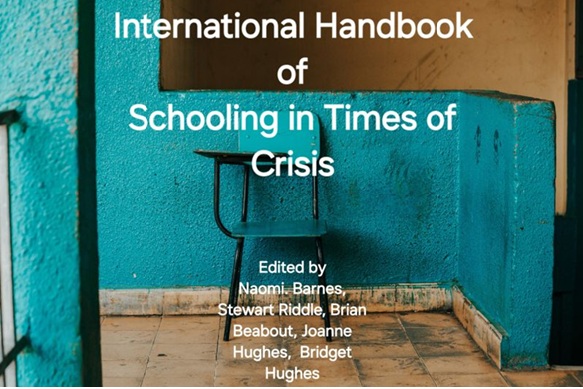Since 2019, school communities across Australia have experienced droughts, bushfires, floods, the COVID-19 pandemic, widening inequality and student segregation, alongside a deepening teacher shortage. During that time, schools have operated as disaster recovery coordination centres, community shelters and emergency learning environments. While one crisis can have long-lasting effects on the resilience of a school community, cascading disasters are likely to affect communities in new ways. This International Handbook seeks to collate world class research about how schools and schooling can respond to this sedimentation of crises in productive and hopeful ways.
The chapters are from international scholars who explore schools and schooling in a time of crisis across a range of contexts and using diverse methodological and empirical analyses. Crisis is broadly defined to include natural disasters, climate risk, gun violence, poverty, disease, schools in war zones, etc. Schools and schooling are broadly defined as the experiences those in the school community—students, teachers, principals, support staff, parents and local organisations— who interact with schools (e.g., structures, halls, grounds, governance and curriculum) and schooling (teaching and learning) in the context of local and global crises.
Chapters include:
- Observations and projections about the role of school communities impacted by, or vulnerable to, climate risk and climate change-fuelled disasters, such as floods, fires and other severe weather events.
- Experiences and suggestions for building community resilience after a crisis.
- The effects of normalisation or sedimentation of cascading crises in school communities with a specific focus on one aspect of the community (e.g., school leaders, support staff, parent associations, teachers or students).
- Observations about shifts in relationships within the school community before, during and after a crisis.
- Teacher education for crisis management.
- School crisis management policy and governance.
- Community/public relations, school communications, parent Facebook groups, etc. during crisis.
- Education politics during crisis.
- Theorisations of schools and schooling during crisis
The Handbook is expected to be published in 2026.
QUT project team
Academic collaborators
